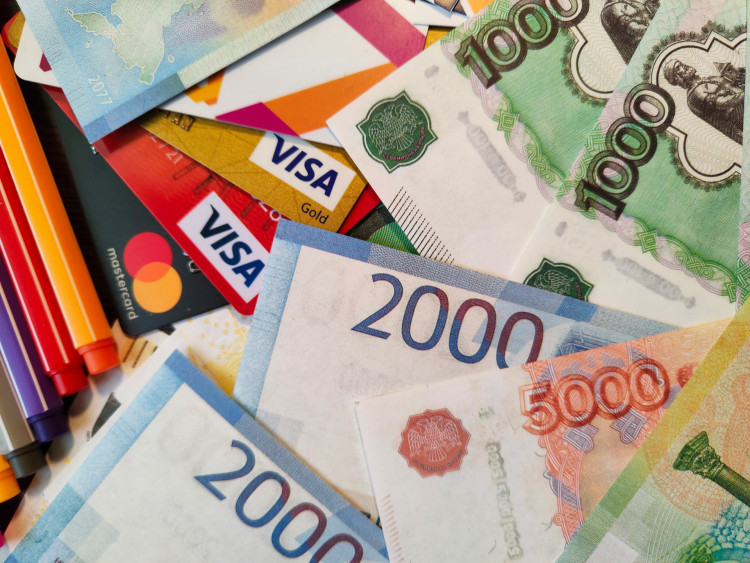The United Kingdom and the United States jointly imposed new sanctions on Wednesday against Russian oligarch Alisher Usmanov and Cyprus-based "financial enablers" who allegedly help conceal his assets, as well as those of fellow Russian billionaire Roman Abramovich.
Dozens of individuals and companies connected to the oligarchs were added to the financial blacklists of both countries, as part of an ongoing effort to constrain the activities of influential figures accused of supporting Russian President Vladimir Putin's government and its war on Ukraine.
Simultaneously, the US imposed sanctions on firms in Hong Kong, Turkey, and the UAE, which it accused of supplying drones and electronics, including American-made semiconductors, to Russia's defense sector. The State Department singled out Chinese company Head Aerospace Technology for selling satellite imagery to Russia's Wagner mercenary group, and blacklisted Patriot PMC, another Russian private militia with alleged ties to Defense Minister Sergei Shoigu.
UK Foreign Secretary James Cleverly stated in a press release, "We are closing the net on the Russian elite and those who try to help them hide their money for war." He vowed that there would be "no place to hide."
US Treasury Under Secretary Brian Nelson said, "As the Kremlin seeks ways around the expansive multilateral sanctions and export controls imposed on Russia for its war against Ukraine, the United States and our allies and partners will continue to disrupt evasion schemes that support Putin on the battlefield."
The sanctions targeted Usmanov's USM Holding and other crucial companies and executives in his network. Usmanov, an Uzbekistan-born iron and steel magnate who controls Metalloinvest, has an estimated net worth of $18.7 billion, according to Bloomberg. The US Treasury stated that Usmanov has close ties to Putin and Dmitry Medvedev, former Russian president and current deputy chairman of the Russian Security Council.
Last year, German authorities raided several of Usmanov's properties for alleged tax evasion and reportedly seized his mega-yacht Dilbar. The US Treasury claimed that Usmanov utilizes "a wide network of businesses in financial safe-havens" like Cyprus, with the help of family members, to transfer money that could evade sanctions.
The UK's Foreign Commonwealth and Development Office (FCDO) imposed sanctions on Cypriot "professional enablers" Demetris Ioannides and Christodoulos Vassiliades, who allegedly assist powerful Russians like Usmanov and previously sanctioned Roman Abramovich in evading Western controls. According to the US government, Ioannides created "murky offshore structures" used by Abramovich to conceal over £760 million in assets, while lawyer Vassiliades established trusts and offshore companies used by Usmanov.
Washington added a third Cypriot enabler, Demetrios Serghides, to its sanctions blacklist, accusing him of assisting in the acquisition and management of assets like real estate for Usmanov and his family.
The FCDO said the latest sanctions also target oligarchs' family members, who act as "proxies to hide their assets." This includes Ukrainian TV presenter Oksana Marchenko, whose husband Viktor Medvedchuk, a former Ukrainian lawmaker and tycoon, was sent to Russia with his wife in a prisoner exchange last year.
Both the US and UK sanctions bodies also blacklisted other Russian tycoons and their families, such as Andrei Skoch, whom the FCDO dubbed the "richest man in the Duma," and telecommunications billionaire Vladimir Evtushenkov.
Cleverly stated, "Together with our international partners, the UK will continue to crack down on those who are supporting the war. We won't stop until (Putin) does."
These coordinated sanctions by the UK and the US further demonstrate their commitment to applying pressure on Russian oligarchs and their enablers, who allegedly support Putin's government and its war on Ukraine. By targeting not only the oligarchs but also their family members and professional facilitators, the UK and US are sending a clear message that they will continue to close loopholes and disrupt financial schemes that might be used to evade sanctions.
International cooperation in the form of joint sanctions has been critical in the effort to weaken the financial capabilities of those accused of backing Putin's war. The latest round of sanctions also highlights the importance of scrutinizing financial structures in countries like Cyprus, which have allegedly been utilized to conceal assets and facilitate the evasion of sanctions.
As the conflict in Ukraine continues, it is expected that the UK, the US, and their allies will continue to impose targeted sanctions on Russian oligarchs and their networks in an effort to deter further support for Putin's government and its actions in Ukraine. However, the ultimate effectiveness of these sanctions will largely depend on the ability of Western countries to monitor and enforce compliance, as well as the willingness of other nations to support these efforts.





